- Home
- Robert J. Crane
Master (Book 5) Page 29
Master (Book 5) Read online
Page 29
“So it wasn’t always mud huts and swamp grass,” Cyrus said, and they started down the avenue toward the slave markets. There was nothing in the air but the lingering of Vaste’s words and the march of the army; the street ahead was as abandoned and lifeless as the one left behind. Not a single resident of Gren remained out of doors.
“No,” Vaste said, with a note of regret. “The death of my people’s imperial ambitions signaled the end of their cares for outside influence. Where once there were spires and grandeur here, the remainder of an outpost of the ancients turned into elven town, abandoned by time and added to by the foremost minds of our people—” he cut off. “Now it’s mud huts. Mud huts and pig pens, here and there.” He glanced to his right and indicated with a wave of the hand exactly that: hogs in a wooden enclosure, stinking, sulfuric mud mixed with the reeking air. Cyrus caught a whiff of it as he passed, and the faint oink of one of the hogs was audible over the sound of the army’s marching.
The glare of the yellow sky matched Vaste’s eyes, and Cyrus found himself struck by the glare of the troll’s anger. His face fell to a sullen expression, resentment mingled with regret in a combination Cyrus had not seen from his friend before. “You fit in better before the fall of the Troll empire, didn’t you?”
He glanced sideways. “We were still a slaving people then. Vicious, violent, gleeful in the destruction of others.”
“The Society of Arms is all those things,” Cyrus said quietly. The relentless march of the Sanctuary army filled the air around them.
Vaste paused before saying any more. “Yes. I fit in better here before. At least then there was hope, there was aspiration, growth and a future for the trolls. There was an intelligentsia that either died in the last war or was killed in the upheaval and recrimination that followed our failure. They believed we could be more instead of scrabbling to be less. Now we are the lowest form of life on Arkaria, and there is no doubt we will remain so. Even the hated goblins have a better chance of a bright tomorrow than we do.” His face flickered with anger as the road widened ahead into a market. “We no longer even try. Servants of the Sovereign, that’s all we’re fit for because we have no brains of our own.”
Cyrus held his reply, casting an eye over the market ahead. Cages were present, iron-wrought, strong in their construction. They seemed out of place in the midst of all the mud huts and low buildings. Their dark metal was intercrossed in small squares, big enough only for a human to squeeze a hand out, perhaps. Latticed bars an inch wide and with a thickness that hinted at their strength. There was a sound of chains, a sound of metal rattling, as Cyrus entered the great market. A few clumsily hung cloth tarps were strung carelessly over a cage here and there, meager protection against the rain and chill for those fortunate enough to be under one.
As Cyrus drew closer, he realized that the silence was the most shocking part of it all. There were figures huddled in the cages, bodies of hundreds or thousands of beleaguered. The nearest cage stood right in the path, and he could see the eyes more than the thin frames. They found him, they watched him, they were near disbelieving as they followed him. Followed the army on his heel.
“Not possible,” came a whisper on the wind. The voice of a slave in a cage.
“Don’t dare to hope,” came a woman’s reply. He could tell it was female only by the highness of the voice.
They were all of them dirty. Black hands, soot-stained faces, hair matted and filthy. He could see that some of them had had their hair shorn off like sheep. Cyrus grew closer and the smell of human filth was near staggering, worse than the troll streets and houses. It filled his nose and mouth, gagged him, and made him want to cover his face with a blood-stained gauntlet.
“The man in black,” came another whisper, childlike.
“Cyrus Davidon—”
“—of Sanctuary—”
Cyrus felt his pace slow, felt his feet draw into short steps. “Set them free,” he said, but his voice sounded choked to his own ears. “Smash open the cages, break their chains.” Silence fell. “Set them free,” he said, louder this time. “Let them loose.” Even his own voice sounded slightly thick with emotion, desperate emotion trying to claw its way out of his mouth and eyes.
“Free—?”
“Don’t dare to hope,” came the voice again.
“This is a dream, isn’t it?” came the child-like voice under the sudden, rising sound of low voices. “This isn’t real, is it?”
“This is as real as it gets,” Vaste said quietly, more for himself than for the speaker, Cyrus realized.
Cyrus watched his army move forward, snaking into lines, running through the gaps between cages like water running into the cracks in a patch of dirt. They moved with spirit, and he saw them breaking open the cages, forcing fine steel swords into the gaps and prying the metal free. The cages swung with squeaks, muted surprise from the occupants who still murmured among themselves. Some came running out with glee, others rested on the floors within, dull eyes not seeming to take in anything of their surroundings.
Others watched him, emotionless, no thought or reason or action behind their irises. The living dead, truly.
Cyrus stood in the middle of the surging army, heard screams and cries of battle on the far side of the square, and felt no call to join them.
“Slavers putting up a last fight,” Vaste said. “Probably what that is, anyway.”
Cyrus nodded. He looked into the center of the market, where a lone pillar stood. It looked familiar, and he knew instantly it had been one of the few spared by the wrath of the Sorceress. A construction of the ancients. He wondered at her intention, and an answer came to him: She wanted them to remember. Wanted them to remember how she’d humbled them. Beaten them. Wanted them to remember the price for what they’d done.
“She took everything,” Vaste said, as though he were reading Cyrus’s mind. He was only inches away, and his quiet voice stood out over the sound of the army. The battle clamor had died away at the far end of the square, and now there were slaves mingling with his own people. His height gave him clear view of the whole spectacle.
And the pillar.
“She wanted to make us feel alone,” Vaste went on. “Wanted us to feel like we were isolated in the world, bereft of any assistance. She destroyed the portal, of course. Cut us off. The humans and the elves would not trade with us, and almost no one else would come here. Why bother, after all? It is not as though the swamp is a place of great import.” He gave a mirthless chuckle. “Or great exports. We have nothing of value to add to the rest of Arkaria. Nothing but our violence.” Vaste bowed his head. “We are alone.”
“None of us is ever alone,” Cyrus said, his voice dull and dead, the words spoken by rote instinct, driven forth by the sight in front of his eyes.
“That’s poetic, but false,” Vaste said. Cyrus could feel the troll’s eyes burning into the side of his head. “You’ve been saying that a lot lately. Is that your new motto?”
Cyrus started slowly forward, his legs barely moving with every halting step. “Not new.”
“Old, then?” Vaste fell in beside him, and the crowds of soldiers and slaves parted for them as Cyrus wove his way slowly between the cages. “Your old motto?”
“Advice from an old friend, I suppose,” Cyrus said. The cages were arranged in a circle with the giant pillar at the center. It stood tall as a titan, a centerpiece for the slave markets, a sight for all to see from wherever they stood.
“Oh?” Vaste said. “And who gave you this piece of feel-good advice that would warm the coldest heart on the most frigid eve? Was it Alaric? It has the ring of something he would say.”
“No,” Cyrus said, ducking his head slightly to avoid an overhanging cloth. It brushed the top of his helm and he could hear it tear as he proceeded onward. “This was before Alaric.”
“So, there was hope for the man in the black armor before he came to Sanctuary,” Vaste said, trailing in his wake. The crowds parted, and Cyrus saw the
base of the pillar ahead, old stone like that of the Citadel in Reikonos, but more weathered. Vines sprouted from the ground and crawled up the sides like a thick tapestry woven around the base. There were long, shredded tracks where the vines had been torn away, worn by the movement of ropes and chains along the length of the pillar.
“Always,” Cyrus said, brushing the cloth overhang free from where it caught his helm. The sky swelled above him at the removal of the dark cloth, the sunset shades growing more orange all the time, fire casting the pillar that stretched above him in shadow, blotting out the sight of its apex to the point he could scarcely see it.
But he could still see it.
“There is always hope,” Cyrus said quietly, “all the way until the end.” He almost hoped Vaste did not hear it.
“No hope for this poor bastard, then,” Vaste quipped, gesturing to the figure atop the pillar. “This is where they make the examples for all the slaves to see.” He made a rough gesture. “They cut him up before they put him there, but the odds were good he was alive for at least a day after it happened.” There was a snuffling of anger in the troll’s words. “Where was his hope, I wonder? Not in Gren, I suspect, for as you heard before we opened the cages, no one dares to hope here. It is a lost place, suitable only for the forsaken.” Vaste’s voice lowered and hardened, and he pointed at the spectacle of the body chained atop the pillar, an example to all. “And as much as I hate to contradict you, my friend, this man died alone. We all die alone.”
“Perhaps you’re right,” Cyrus said, voice faint, near to cracking. He looked up, and saw in the shadow cast by the pillar, the faint darkness where once there had been the eyes of Cass Ward, hidden under the shorn head and mutilated chest of a warrior true.
Chapter 44
19 Years Earlier
“None of us is ever alone,” Cass said to his assembled team. They listened, they hung upon his every word, this twelve-year-old leader of men and boys and girls and women.
And behind them, in the darkness, Cyrus Davidon, also twelve years old, listened for himself and imagined the words being spoken directly into his ears by a caring voice, one that left off all the malice.
No one spoke to Cyrus save for the Society instructors. Speaking to him was forbidden; he was outcast, with no Blood Family to call his own.
Cyrus stayed in the shadows, held to the shadows, hoping no sight of his face remained. This was not a time of testing and yet, here in the Society, every moment was a test. He kept to the shadows as much of the time as he could. It was easier that way, to remain out of the way of the older children in the Society. They were not allowed to kill him in plain view of the instructors, after all. And the instructors were about often, but not all the time. The shadows had become a habit, and looking over his shoulder had been a talent he’d learned in the last few years.
The smell of cooked meat filled the air, tickling Cyrus’s tongue and making his stomach rumble. They stood in the mess hall, the place where the assembled Society ate and spoke, met and talked. There was fellowship and the filling of bellies, Blood Families sitting across from each other, huddled over the bowls, taking a drink of their tankards, clinking them together in companionship.
Cyrus stayed in the shadows. He ate on the floor. The hall was divided neatly in two, half the tables for the Able Axes, half for the Swift Swords. He knew his place, and it was to sit against a wall out of the reach of flickering candles and watch that which he never had. He would take his food quickly, sullenly, not a second to be spared, and he would leave the hall as soon as he was done. Sometimes he missed directives, orders handed down from the instructors. That was the price he paid for staying alive, for being clear of the hall before the rest of the trainees got done. He had already found his bedding place for the night by the time the first of them left the hall, and it was always, without exception, somewhere that he could not be approached without considerable noise. He liked to creep about on the tall beams of the dining hall after dinner, sleep against the rafters where he could not be seen, tucked against the red pine so tight that if he rolled so much as an inch in the other direction he would lose contact with the former tree trunk that he wrapped himself around. He had grown accustomed to no blanket.
This was the way of things, the reality and the cold truth. It was the life of Cyrus Davidon, outcast of the Society, and he had hardened his heart to any possibility of hope.
“None of us is ever alone,” Cass Ward repeated, speaking to a whole table of those his own age and older. He was a leader, strong-backed and tall. He fled no one and nothing, did not have to pick his battles like Cyrus. Cass Ward never doubted that he had a family at his back, a Blood Family to be the currency that backed his every statement and threat.
Cyrus did not make threats. He chose moments to strike when needed in exercises. He fought singly wherever possible. He had no gold to back a threat if he made it, and his enemies were legion and would overwhelm him with numbers should he antagonize them too greatly. They had already tried on more occasions than he could count. He had defeated them every time they had come, exacting a terrible cost that made them want to stay away from him.
Still, it was a lovely thought, the idea that he was not alone. He finished the last of his stew and left the bowl in the shadows. The kitchen staff never complained about it, which was a minor and nearly unbelievable gift in and of itself. In the Society, every misstep, however slight, was catalogued and thrown back at the transgressor. Leaving his bowl was an affront to the Society and to the discipline of keeping your own space clean. Still, Cyrus did not push his luck and simply said a prayer to Bellarum that he’d get away with it for another day; leaving the shadows to place this bowl in the spot where the other dishes were collected would have tipped his departure to the entire hall. His shroud of secrecy depended upon it, and it was luck, sheer luck, or perhaps a kind member of the kitchen staff, which spared him this particular disadvantage that could lead to death.
He crept from the room, threading his way through the darkened hallways of the Society. In the hour following the end of his dinner, Cyrus went to the arena, the area of challenge. Tonight was no exception, and—in the shadows, of course—he used a wooden sword to practice the latest movements that had been taught today. With no enemies about to hobble him, he was able to plan, to work the moves into his mind before the tests on the morrow. He imagined a swordsman across from him, fast and agile, testing him, laughing with him, practicing as they drove each other to greater heights of skill.
But there was no laughter here in this place with him; he was alone, always.
When the first laughing voice reached his ears, he put the sword back on the rack without leaving the shadows and fled the arena. Others would come, as they always did. Cyrus watched them, but never once did they pick up swords. They gathered and gabbed, talking their hearts out as they sat in the seating around the arena. Never once had he seen them enter the dirt floor itself, the place of trial and learning, at least not while he was there. They practiced in the day and left their nights free for spoken glee and shared jest; they were a lazy and complacent lot to Cyrus’s eyes, but they outnumbered him as a plague of flies outnumbers the wasp. He was content to stick to the darkness and hide from their eyes, counting the days and months and years until he would be free. Free of this place. Free to seek my fortunes unfettered by people constantly eyeing me with ill thoughts.
Though I suppose the outside world will leave me just as alone and threatened as I find myself in these walls. He heard Cass Ward’s ringing words in his ears and scoffed mentally. Not being alone is a hobble for the weak; my strength is my lack of attachment. No one to drag me down, to slow me. No one to rely on me, to bind me to them.
I am alone, and it is my power.
He made his way through the halls as silently as any thief. When he reached the dining hall, he avoided the doors and climbed the nearby stairs. Pausing on the landing, he listened for any sound of glee, or mirth, or breathing. Hearing no
ne, he climbed using the layered bricks, carefully and quickly, squeezing through the small gap in the wall at the top. His feet touched silently upon one of the beams that stretched across the top of the hall. It was only a foot wide and paralleled on each side by matching ones. Ten of them provided the support across the hall, with a much larger one intersecting them in the middle and holding them up.
The candles in the hall were all dimmed, only one in five now lit. In the dinner hour, they shed their flickering light in nearly every direction, forcing him to seek out the farthest place from their radiance. Now the place was all shadows, his domain. He made his way across the beam as silently as he had stolen through the halls and pivoted adeptly at the center beam. It was three feet wide, made from a tree larger than any he had seen with his own eyes. It was long and straight, a sword with ten crossguards. He made his way to the far end, over the massive doors that led out of the hall.
He was almost to the end, to that narrow bed where he slept, when he realized he was not alone. He heard more than he saw, could sense more than his eyes could inform. He froze, the fear of being discovered in this place wrenching his still-full stomach, and he hoped that his senses deceived him. No. This has been the best, by far of my hiding spaces. I can’t—
Cyrus looked over the side, down to the hall below. There was a figure in the dark, a brown-haired male still lurking in the back of the hall, where Cyrus had eaten his meal. There was the slightest sound of a clatter, and the figure emerged into the candlelight in the middle of the room bearing a bowl—Cyrus’s bowl.
Cass Ward made his way slowly to the kitchen, the bowl in hand with his own. He carried them toward the kitchen, where the scent of the ovens’ still-burning embers persisted. He placed both bowls on the counter with the rest, making nearly no sound.

 The Girl in the Box Series, Books 1-3: Alone, Untouched and Soulless
The Girl in the Box Series, Books 1-3: Alone, Untouched and Soulless Alone: The Girl in the Box, Book 1
Alone: The Girl in the Box, Book 1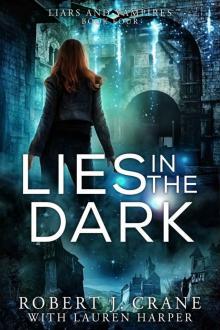 Lies in the Dark
Lies in the Dark Cold
Cold The Gang of Legend
The Gang of Legend Control: Out of the Box (The Girl in the Box Book 38)
Control: Out of the Box (The Girl in the Box Book 38) Someone Should Save Her
Someone Should Save Her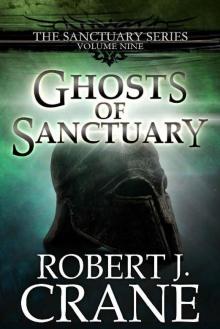 Ghosts of Sanctuary
Ghosts of Sanctuary Flashback (Out of the Box Book 23)
Flashback (Out of the Box Book 23)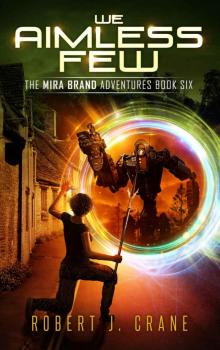 We Aimless Few
We Aimless Few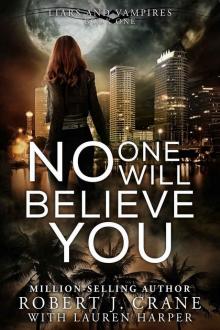 No One Will Believe You
No One Will Believe You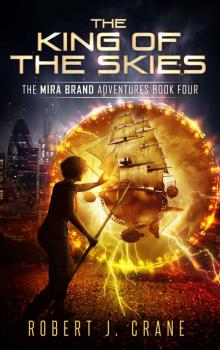 The King of the Skies
The King of the Skies Apex
Apex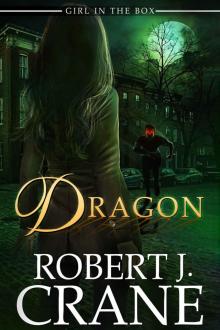 Dragon: Out of the Box (The Girl in the Box Book 37)
Dragon: Out of the Box (The Girl in the Box Book 37)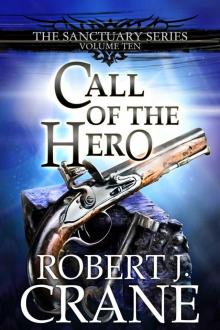 Call of the Hero
Call of the Hero Blood Ties
Blood Ties A Home in the Hills
A Home in the Hills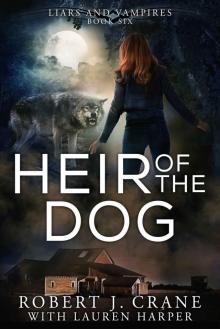 Heir of the Dog (Liars and Vampires Book 6)
Heir of the Dog (Liars and Vampires Book 6) Driven
Driven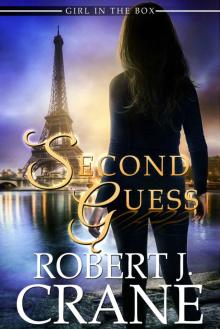 Second Guess (The Girl in the Box Book 39)
Second Guess (The Girl in the Box Book 39) A Respite From Storms
A Respite From Storms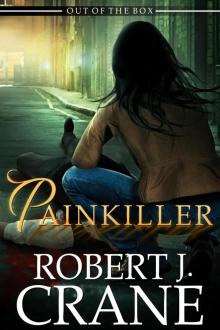 Painkiller
Painkiller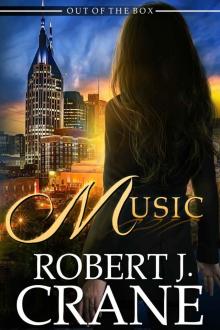 Music: Out of the Box 26 (The Girl in the Box Book 36)
Music: Out of the Box 26 (The Girl in the Box Book 36)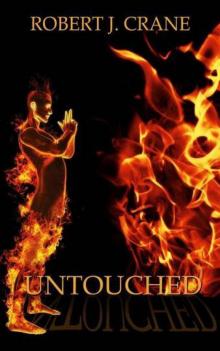 Untouched tgitb-2
Untouched tgitb-2 Unyielding (Out of the Box Book 11)
Unyielding (Out of the Box Book 11)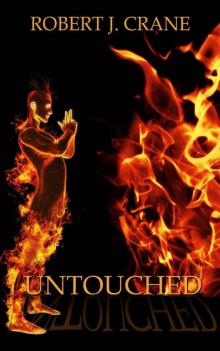 The Girl in the Box 02 - Untouched
The Girl in the Box 02 - Untouched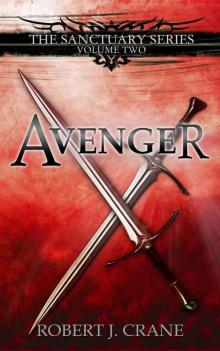 The Sanctuary Series: Volume 02 - Avenger
The Sanctuary Series: Volume 02 - Avenger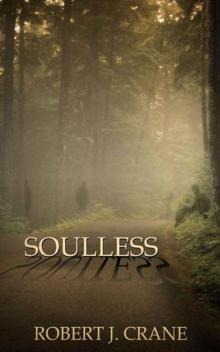 Soulless tgitb-3
Soulless tgitb-3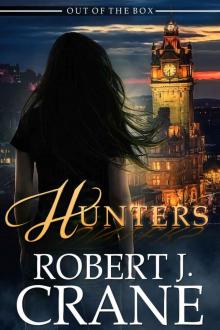 Hunters (Out of the Box Book 15)
Hunters (Out of the Box Book 15) Toxicity (Out of the Box Book 13)
Toxicity (Out of the Box Book 13)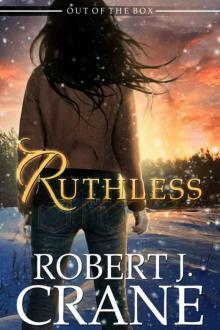 Ruthless (Out of the Box Book 3)
Ruthless (Out of the Box Book 3)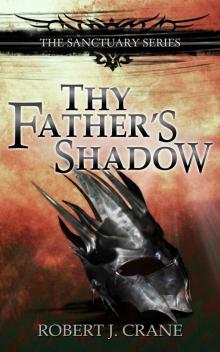 Thy Father's Shadow (Book 4.5)
Thy Father's Shadow (Book 4.5) Power
Power Alone tgitb-1
Alone tgitb-1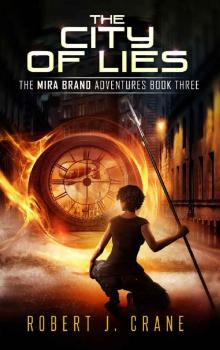 The City of Lies (The Mira Brand Adventures Book 3)
The City of Lies (The Mira Brand Adventures Book 3)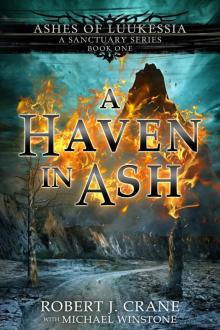 A Haven in Ash
A Haven in Ash Family
Family Sanctuary Tales (Book 1)
Sanctuary Tales (Book 1) Hero
Hero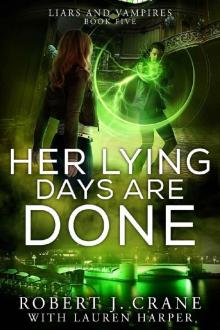 Her Lying Days Are Done
Her Lying Days Are Done![Crane, R [ Southern Watch 03] Corrupted Read online](http://i1.bookreadfree.com/i1/04/02/crane_r__southern_watch_03_corrupted_preview.jpg) Crane, R [ Southern Watch 03] Corrupted
Crane, R [ Southern Watch 03] Corrupted Tormented
Tormented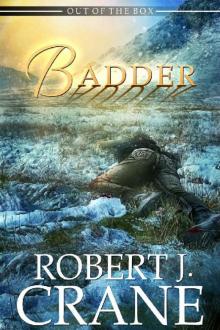 Badder (Out of the Box Book 16)
Badder (Out of the Box Book 16)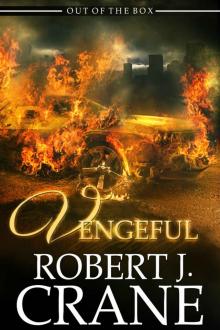 06 - Vengeful
06 - Vengeful The World Beneath (The Mira Brand Adventures Book 1)
The World Beneath (The Mira Brand Adventures Book 1)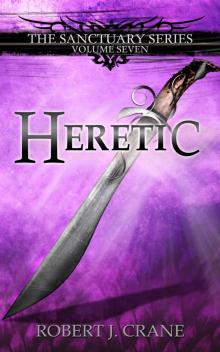 Heretic (The Sanctuary Series Book 7)
Heretic (The Sanctuary Series Book 7) Omega tgitb-5
Omega tgitb-5 The Tide of Ages (The Mira Brand Adventures Book 2)
The Tide of Ages (The Mira Brand Adventures Book 2)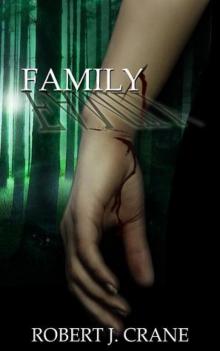 Family tgitb-4
Family tgitb-4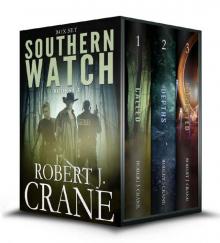 The Southern Watch Series, Books 1-3: Called, Depths and Corrupted
The Southern Watch Series, Books 1-3: Called, Depths and Corrupted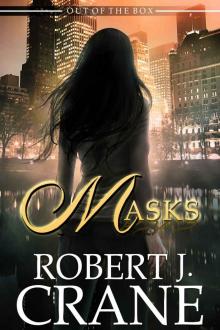 Masks (Out of the Box Book 9)
Masks (Out of the Box Book 9)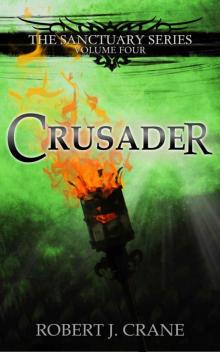 Crusader: The Sanctuary Series, Volume Four
Crusader: The Sanctuary Series, Volume Four Out of the Box 7 - Sea Change
Out of the Box 7 - Sea Change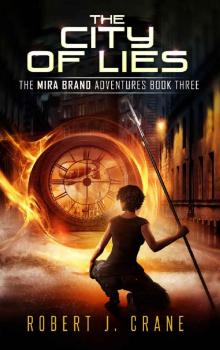 The City of Lies
The City of Lies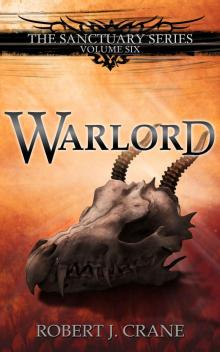 Warlord
Warlord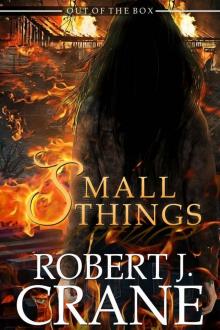 Small Things (Out of the Box Book 14)
Small Things (Out of the Box Book 14)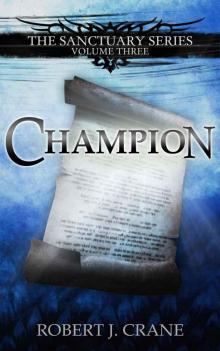 The Sanctuary Series: Volume 03 - Champion
The Sanctuary Series: Volume 03 - Champion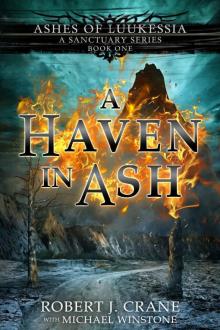 A Haven in Ash (A Sanctuary Series) (Ashes of Luukessia Book 1)
A Haven in Ash (A Sanctuary Series) (Ashes of Luukessia Book 1)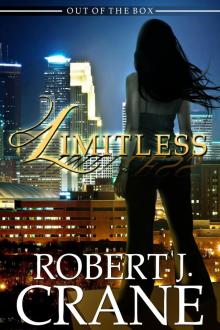 Limitless
Limitless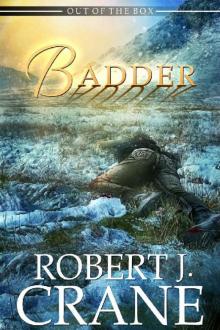 Badder
Badder Legend
Legend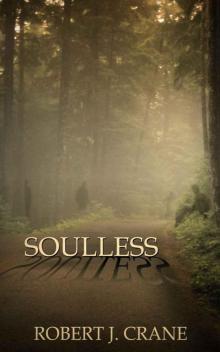 The Girl in the Box 03 - Soulless
The Girl in the Box 03 - Soulless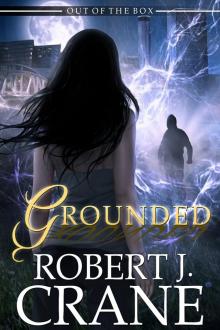 Grounded (Out of the Box Book 4)
Grounded (Out of the Box Book 4) In the Wind (Out of the Box Book 2)
In the Wind (Out of the Box Book 2)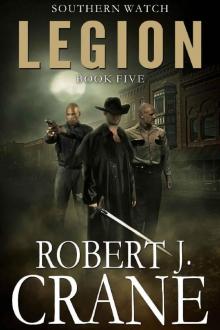 Legion (Southern Watch Book 5)
Legion (Southern Watch Book 5)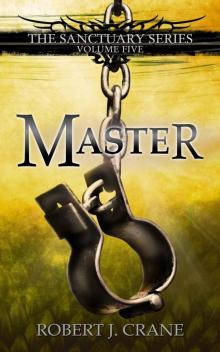 Master (Book 5)
Master (Book 5)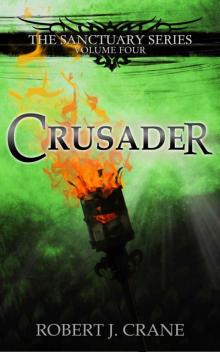 Crusader s-4
Crusader s-4 Starling (Southern Watch Book 6)
Starling (Southern Watch Book 6)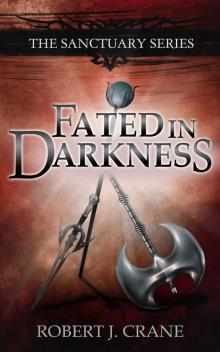 Sanctuary 5.5 - Fated in Darkness
Sanctuary 5.5 - Fated in Darkness